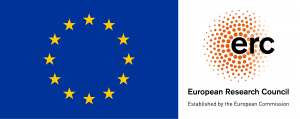Article – J. Ponzo, The mystics’ participation to the Passion and confabulation: semiotic reflections (Rivista Italiana di Filosofia del Linguaggio, 2022)

J. Ponzo, “The mystics’ participation to the Passion and confabulation: semiotic reflections”, in “Rivista Italiana di Filosofia del Linguaggio” (2022) (PDF)
Abstract
In the context of Catholic mysticism, one of the experiences in which the body is most intensely involved is reliving the Passion of Christ. Starting from the testimonies concerning the twentieth-century mystics Alexandrina da Costa and Teresa Neumann, the present contribution considers this phenomenon from a semiotic point of view, that is, as part of an interpretative circle that relates the Gospel account, the mystic’s body and the narration of this extraordinary event. The mystical experience of the Passion is compared with the concept of “confabulation”: although the two differ in various respects, both can be considered as extreme forms of the fundamental interpretative mechanism of reconstruction and integration of the information implicit in the narrative texts. In the light of this consideration, the testimonies relating to the experience of the Passion seem to describe an experiential interpretative style, which has as its basis the evangelical history of the Passion, which, however, is interpreted, figurativized and relived with the whole body. One can think of this experience as a sort of intersemiotic translation of a story that, instead of being transposed, for example, from verbal to visual or audio-visual language, constitutes an all-encompassing semiotic experience.

